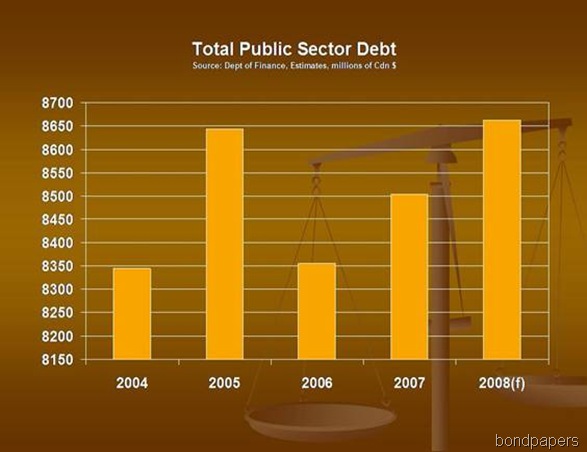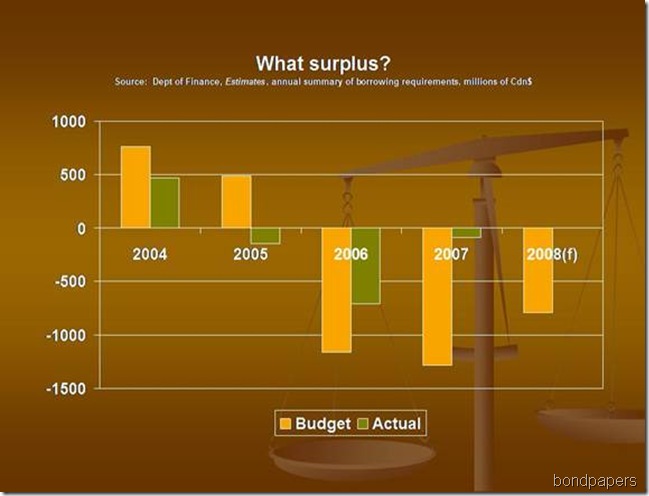While rookie member of parliament Siobhan Coady leaped past considerably more experienced caucus mates to get a post as the fisheries and oceans critic (and good on her), the last Dion shadow cabinet seems to be a case of sticking the Newfoundlander in charge of the fish.
Sure Coady has a family business in the fishery and therefore knows something about things that live in the ocean and the people who make a living - such as it is in most cases - from it.
But for far too long, Newfoundland and Labrador has been politically regarded as the home of fish and whine.
Count up the number of times fisheries and oceans in any party has gone to a Newfoundlander since 1949 either as minister or as an opposition critic. You'll quickly get the point.
There are more than a few substantive problems with this of course.
First, there is an inherent conflict of interest in putting in charge of the fisheries department a politician with ties to the fishing industry. That no one seems bothered by this is a sign that the fishing industry has no political clout in the country even though it is a significant economic sector in several provinces.
Second, there is an even greater conflict created by putting in charge of fisheries (or acting as the critic) any politician from a province where the fishery is less a business than a Frankenstein exercise in social engineering.
The tinfoil hat brigade, the anti-Confederate sasquatch hunters will leap forward to blame the evil machinations of "Ottawa" for the plight of the local industry. The sad reality is that the current mess is entirely the construction of the political, social and business interests of Newfoundland and Labrador, over successive generations, who have forestalled, undermined and otherwise opposed any real and positive reform.
In Newfoundland and Labrador, the fishery is a cult. As with any cult, it has its high priests who will rush to the temple altar - in this case the local open line shows and fisheries broadcast - to declare any reformer as a traitor, as a heretic. It is an inbred cult where satisfaction comes from shagging your own. Onlookers are distracted from the spectacle by the claim that outsiders have covetous designs on the defiled or that foreigners need to be driven from what is left of the sanctuary.
Of course, there is also the third problem, namely the perpetual death struggle between local and national politicians. Williams penchant for whining and his love of personal attacks first on Loyola Hearn and then Fabian Manning, only added to the problem lately and gave the Conservative death struggle its unique characteristics. Theirs is just the latest racket, though, in what has been, essentially, an interminable struggle.
Consider, if you will, two groups of politicians sitting in a meeting room, discussing not how best to help unshackle the legion of wage-slaves chained to the splitting tables, but rather jockeying to avoid being the one to take the political flack from the cultists.
If any political party in Canada had any real interest in the people involved in the fishery, they would never appoint anyone from this province to serve as fisheries minister or as critic of the department. Nor would they appoint someone from a neighbouring fisheries provinces who does little more than mouth the worship words of the local cultists.
And if any politician from this province wanted to do anything for the fishery other than perpetuate the misery in it, he or she would refuse any political responsibility for it either in cabinet or opposition. Better leave the job to someone not already seduced by the cultists.
Sadly, in the the New Democratic opposition and now the Liberal shadow cabinet, we have the same old cycle repeating itself once again.
As far as this appointment goes, Siobhan Coady has done alright for herself; it's quite a plum and we get a fresh face on the scene.
But for the fishery?
We'd venture there'll just be more of the same.
Wait.
What's that on the wind?
Could it be a news release on custodial management?
-srbp-
 1. Reduce the public debt by 50% within 10 years. Beginning in the early 1990s, successive administrations restructured public borrowings to convert debt held in foreign currency. As a result, the current burden on the treasury is significantly reduced and uncertainty due to currency fluctuations has been all but eliminated.
1. Reduce the public debt by 50% within 10 years. Beginning in the early 1990s, successive administrations restructured public borrowings to convert debt held in foreign currency. As a result, the current burden on the treasury is significantly reduced and uncertainty due to currency fluctuations has been all but eliminated.  2. Balance the books, every year. Government surpluses in recent years have been built on the blind good fortune of astronomical oil prices. Those prices are an unreliable source of cash. On a cash basis, the provincial government has actually been in debt each year since 2005. That means new borrowing to add to the burden of public debt.
2. Balance the books, every year. Government surpluses in recent years have been built on the blind good fortune of astronomical oil prices. Those prices are an unreliable source of cash. On a cash basis, the provincial government has actually been in debt each year since 2005. That means new borrowing to add to the burden of public debt.